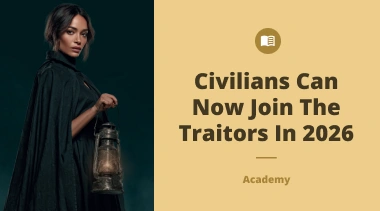What is a Monologue?
A monologue is a form of acting where the act performs a speech, line, or conversation alone. It is often asked to perform a short monologue during your audition.
This is because the monologue is a pure reflection of the actor's talent. Just you and your ability to tell, feel and sell a story.
In this article, we'll be showing you how to choose a monologue. But first, let's look at the types of monologues.
Types of Monologues
Soliloquy
This is a type of monologue where the act speaks their thoughts to themselves alone, not even the audience. Here you express your thoughts without addressing anyone in particular. If your casting director asks you to do a soliloquy, start speaking your thoughts — to yourself.
Also Read: How to Model for H&M?
Dramatic monologue
This type of monologue is where an act gives a speech that reveals their character. This speech is usually directed at another character. In an audition, if you're asked to do a dramatic monologue, make a speech that reveals something about your character. You should also directly address your speech to another person in the casting room.
Internal monologue
This is a verbal expression of the actor's feelings, thoughts, and emotions. This type of monologue helps the audience know what is going through the character's mind.
Active monologue
Here, the act communicates to an imaginary entity. You have to be imaginative, considering that you won't be talking to anyone. A monologue beginning with, "I know what you did, when, and why…" can be challenging to pull off, especially when looking off into space.
You might also be interested in:
- Reality TV Show Casting Calls 2023,
- Model Casting Calls,
- Atlanta Casting Calls,
- Casting Calls in San Francisco.
Comedic monologue
The name gives it away. A comedic monologue is a form of monologue aimed at provoking laughter. This can be tough to come up with on the spot, so if you opt for humor in your next audition, it's best to prepare your material beforehand.
Serio-comic monologue
Also known as a serial-comedic monologue, this monologue, unlike the comedic monologue, balances humor with seriousness. This means your topic of choice must be well thought out, and your approach must allow for seriousness in the mix of comedy and vice versa.
Historical monologue
If you're a fan of politics, social issues, and history, you'll love this type of monologue! Here, the act narrates a monologue loosely or tightly related to a historical event. An example of a historical monologue can be an act describing how the world war affected his life.
Narrative monologue
Here, the act tells a story, so their speech is mostly or entirely in the past tense. Some examples of how a narrative monologue would go are; "I was walking down a dark, empty street…", "It was a cold, dark night…" and so on.
Confessional monologue
This monologue serves as a medium for the act to reveal a significant part of the plot. This can serve as a resolution after the climax. It can also lead to a further deepening of the plot. If you intend to use this type of monologue in your audition, be creative and grab your audience's attention.
Also Read: How do Actors Kiss When They are Married?
Tips on How to Pick Monologue
Now that you know some of the types of monologues out there, here are some tips to help you select the one that's right for you:
- Pick the one you're good at: While you may feel like you can deliver on all these types ( we don't doubt this, btw), choosing the one you're best at is best. Do you enjoy history? Or is humor your forte? Use your strengths to navigate through the types of monologues and select the one for you.
- Pick a captivating monologue: Of course, all monologues can be captivating, depending on the character's delivery and other factors. However, if you want to impress the pants off your casting director, you should pick a monologue that's been well-planned, attention-grabbing, and enjoyable to watch.

- Pick a monologue that follows the KISS rule: If you aren't familiar with the KISS rule, it means Keep It Short and Simple. Other actors want to audition for the role, sane as you. Pity the casting directors as they have to examine other performers as well. Deliver and conclude your monologue while you still have their attention.
- Pick a morally decent monologue: There is no reason to push the extremes in your monologue. Avoid sensitive topics or topics that involve sensitive issues such as sex, religious or ideological bias, and so on.
Also Read: What Do Producers Look for When Casting Reality Shows?
- Pick an uncommon monologue: There are a ton of monologues out there, so why settle for the one which would also be performed by the next person in line? Rather, do research a not-so-popular yet, original monologue and choose the one that appeals to you most.
- Pick a monologue you've practiced: You can't just waltz into the audition room thinking you'll kill the monologue on your first try. While you may read from a script, you still need to be able to express emotions, pause when necessary, and so on. Of course, you can only master this if you practice.
You've put together the perfect costume and spent hours mastering the role, but what happens when your casting call requires you to perform a short monologue? This article shares some of the types of monologues and also tips on how to select one for your next audition.



